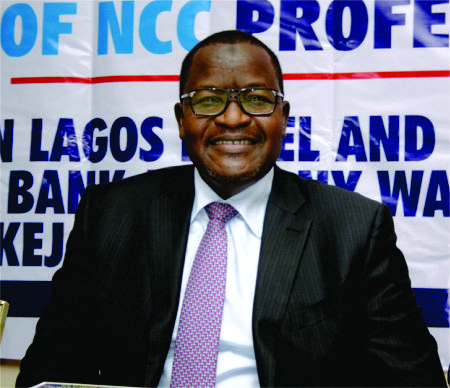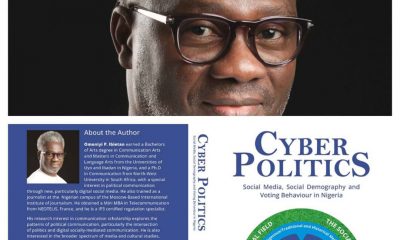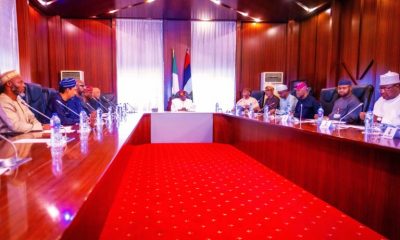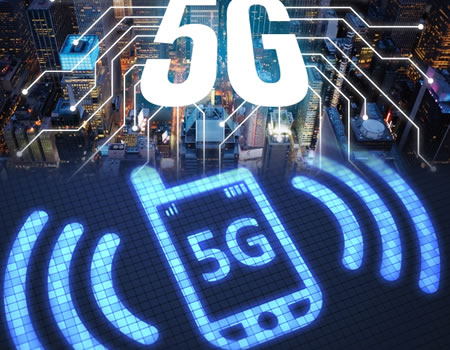THE Executive Vice Chairman (EVC) and Chief Executive of the Nigerian Communications Commission (NCC), Prof. Umar Garba Danbatta has assured International and potential investors that Nigeria remains a sure haven for ICT investments.
Danbatta spoke during a panel discussion in Barcelona, Spain, on the topic “Is closing the digital divide in Sub-Saharan Africa myth or reality”.He assured the International Community that the NCC’s eight-point agenda has been carefully packaged to cushion all aspects of investments, especially “as we move to the next frontier of ICT revolution broadband for internet connectivity”
The panel discussion was a part of the Regional summit for Sub-Saharan Africa at the just concluded, Mobile World congress (MWC) by GSM Association, in Barcelona, Spain.
Danbatta told the panel which was moderated by Nigeria’s Shola Taylor who is also the Secretary General of the Commonwealth Telecommunications Organisation (CTO) that the NCC has put in place the agenda to encourage investors. “Two of the prominent goals are related to deployment of infrastructure for broadband and efficient utilization of Spectrum to benefit all Nigerians in all the regions”
ALSO SEE: More trouble for MTN as House insist on full payment
He told the audience, which included Secretary General of African Telecommunications Union (ATU), Abdoukarim Soumaila; Deputy Minister, Telecoms and Postal Services for South Africa, Prof. (Ms) Nlengiwe Mkhize, Meg. Charles-Horn (Africa mobile Networks), Shiletsi Makhofane (Ericsson Sub-saharan Africa), Mortimer Hope, Director Africa for GSMA, Alan Marcus (World Economic Forum) and Nkateko Nyoka of Vodacom Group among others, that the NCC will keep fate with the National Broadband Plans and in line with this, the country now has seven zones and each zone will have one operator which will deploy broadband services to every part of that zone.
So far, two infrastructure licences have been issued for Lagos and North Central Zones including the Federal Capital Territory, Abuja and the process for issuing licenses for the other five zones has begun.
Danbatta assured that “the regulatory framework has been put in place to ensure a transparent licensing process because we really want to bridge the digital divide”.
“We want to bridge the digital divide by addressing infrastructure divide and we will be transparent and open about this, Danbatta further submitted.
ALSO SEE: We are set to improve on broadband penetration — NCC
Earlier in his presentation, Soumaila bemoaned the general poor connectivity of African continent despite huge investments so far by the 46-member Nations of ATU.
Chief Officer, Regulatory Affairs, Vodacom, Nkateko Nyoka said to bridge the digital divide, emphasis has shifted from voice to data and “we need skills to run sustainable businesses”. He advised regulators to make clear goals in terms of Spectrum allocation”.
For Head, Government and Industry Relations, Ericsson Sub-Saharan Africa, Shiletsi Makhafane, despite the seeming digital divide, there are more mobile phones than TV sets but admitted that “we can reach more people through mobile broadband.”
Meg Charles-Horn of Africa Mobile Networks said adequate connectivity is the only way to bridge the digital divide and “we want to galvanize the opportunity for everyone to have connectivity hence our partnership with the operators across Africa”.

 Business1 week ago
Business1 week ago
 Football1 week ago
Football1 week ago
 Entertainment6 days ago
Entertainment6 days ago
 Entertainment3 days ago
Entertainment3 days ago
 Business1 week ago
Business1 week ago
 Latest1 week ago
Latest1 week ago
 Comments and Issues6 days ago
Comments and Issues6 days ago
 Comments and Issues6 days ago
Comments and Issues6 days ago








